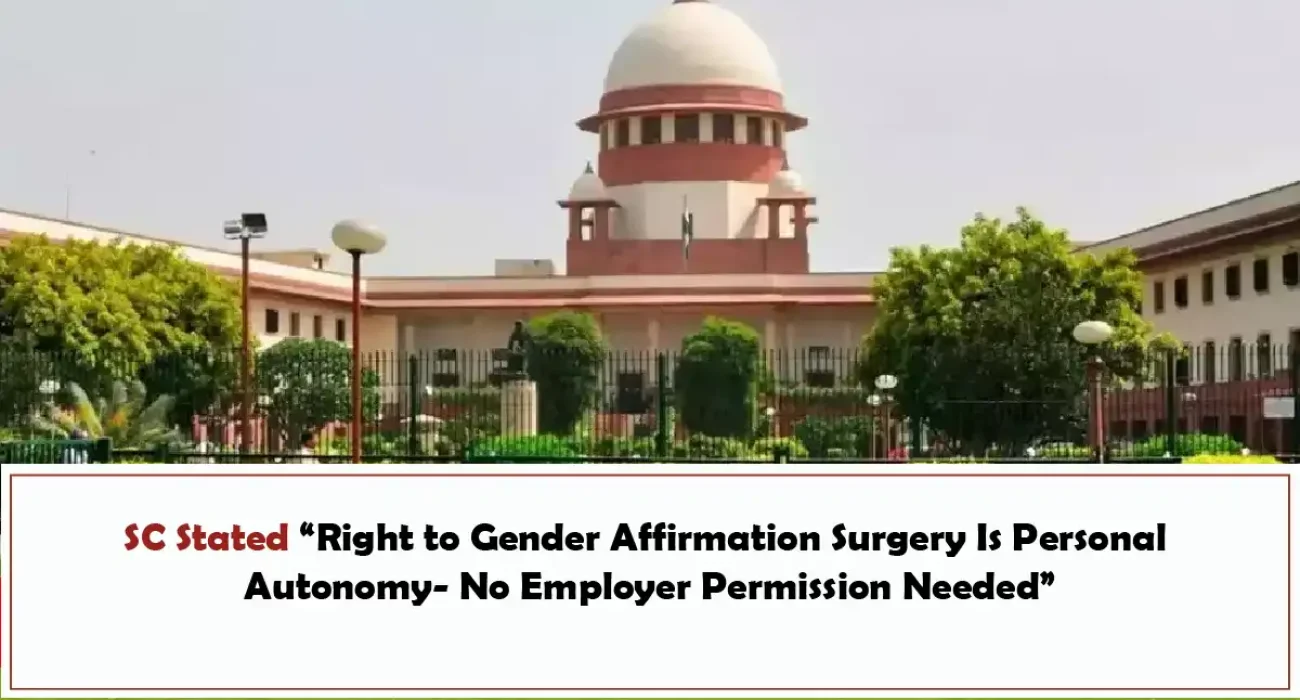

Table of Contents
ToggleThe writ petition was filed by Ms. J, a transgender woman who underwent gender affirmation surgery in 2019. She was appointed as a teacher at Uma Devi Children’s Academy, Uttar Pradesh in November 2022 but claims she was harassed, body-shamed, and outed by colleagues and students for not conforming to traditional gender norms. After she complained, she alleges she was compelled to resign. The school denied discrimination and argued her termination was due to poor performance and classroom indiscipline, citing a student complaint and alleged misconduct, while asserting it accommodated her by providing female hostel accommodation and washroom access. The incident received media coverage, leading to a defamation notice against her from the school. She was later offered reappointment but did not attend the subsequent test; the role was filled.
She then applied to JP Modi School, Jamnagar, cleared an online interview, and received an offer letter. However, after submitting documents reflecting her gender transition during joining formalities, the school withdrew the offer without reasons. The school later claimed her selection was provisional subject to verification and probation, denying discrimination. Ms. J approached the Supreme Court alleging unlawful termination and discrimination in recruitment due to gender identity under the Transgender Persons (Protection of Rights) Act, 2019, Articles 14, 15, 21, and 23.
Ms. J asserted she faced discrimination due to her transgender identity, first through forced resignation at Uma Devi School following harassment and outing by staff and students, and later by withdrawal of an appointment after disclosure of gender-transition documents at JP Modi School. She argued that the actions violated Section 9 of the Transgender Persons Act, which prohibits discrimination at recruitment and employment stages, and her constitutional rights to equality and dignity. She contended that transgender persons are forced to hide gender identity or avoid gender affirmation procedures due to fear of job loss, and employers cannot demand permission for gender affirmation as it infringes autonomy.
Uma Devi School denied intentional discrimination and argued her separation was due to performance-related issues and misconduct, citing a specific student complaint. The school claimed a supportive stance, pointing to female hostel accommodation and restroom access. JP Modi School denied discriminatory motive, asserting the appointment was provisional, conditional on verification, and not linked to gender identity. Government authorities maintained they were taking steps to implement the Act but admitted challenges in ensuring full compliance in educational institutions.
The Court emphasized that gender identity and affirmation procedures fall within protected autonomy, dignity, and self-determination, holding employers cannot demand permission for gender affirmation surgery. The bench observed instances of transgender employees being forced to avoid gender-affirming procedures due to fear of employment consequences and criticized institutional inaction.
It held: “We have no hesitation in saying that no transgender or gender diverse person is bound to take permission from their employer to undergo surgical intervention, unless the nature of their work is such that it is based on one’s gender identity.” The Court clarified that prior notice is permissible only for administrative updates: “Of course, the employers must be given a reasonable notice, but that should purely be to make the requisite changes and modifications in documents, etc.”
The Court noted partial accommodation by Uma Devi School but faulted its handling of harassment and absence of statutory grievance mechanisms. Conversely, the withdrawal of the appointment at JP Modi School when gender documents were submitted amounted to discrimination in recruitment prohibited by Section 9 and Article 15. The State’s regulatory failure amounted to “omissive discrimination”, as authorities failed to enforce the Act or provide effective redress.
The Court held Uma Devi School’s conduct did not meet the threshold of proven intentional discrimination but censured its failure to address harassment and lack of grievance redressal mechanisms. JP Modi School, however, was found to have discriminated by rescinding the job offer after disclosure of gender identity. The Court awarded ₹50,000 compensation from JP Modi School and directed the Union and relevant State authorities to each pay ₹50,000 for administrative failure to ensure effective implementation of transgender protections. The Court reaffirmed that transgender persons need not obtain employer permission for gender-affirmation surgery, reinforcing autonomy and dignity.
Written by Adv. Deeksha Rai
IAW resources
Browse our help directory